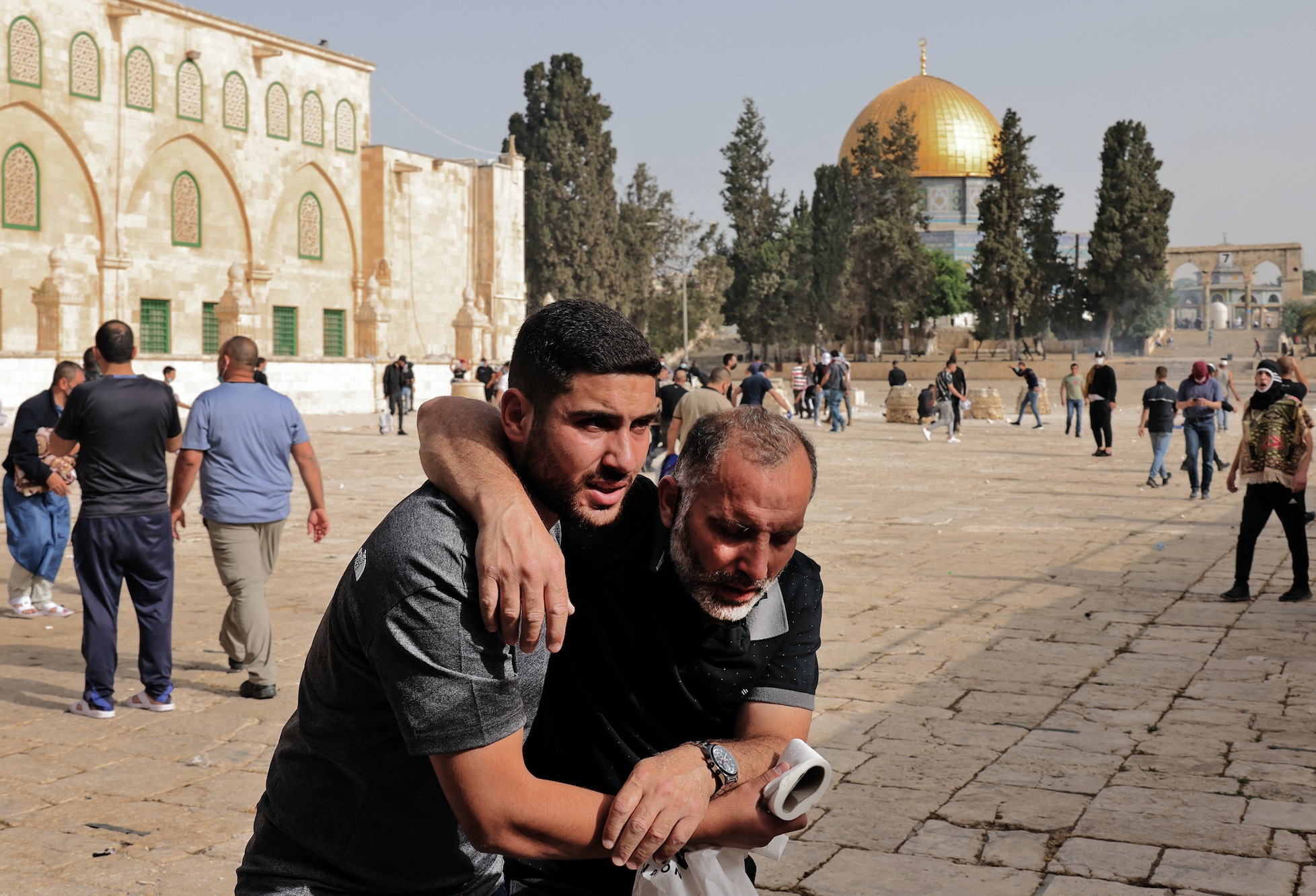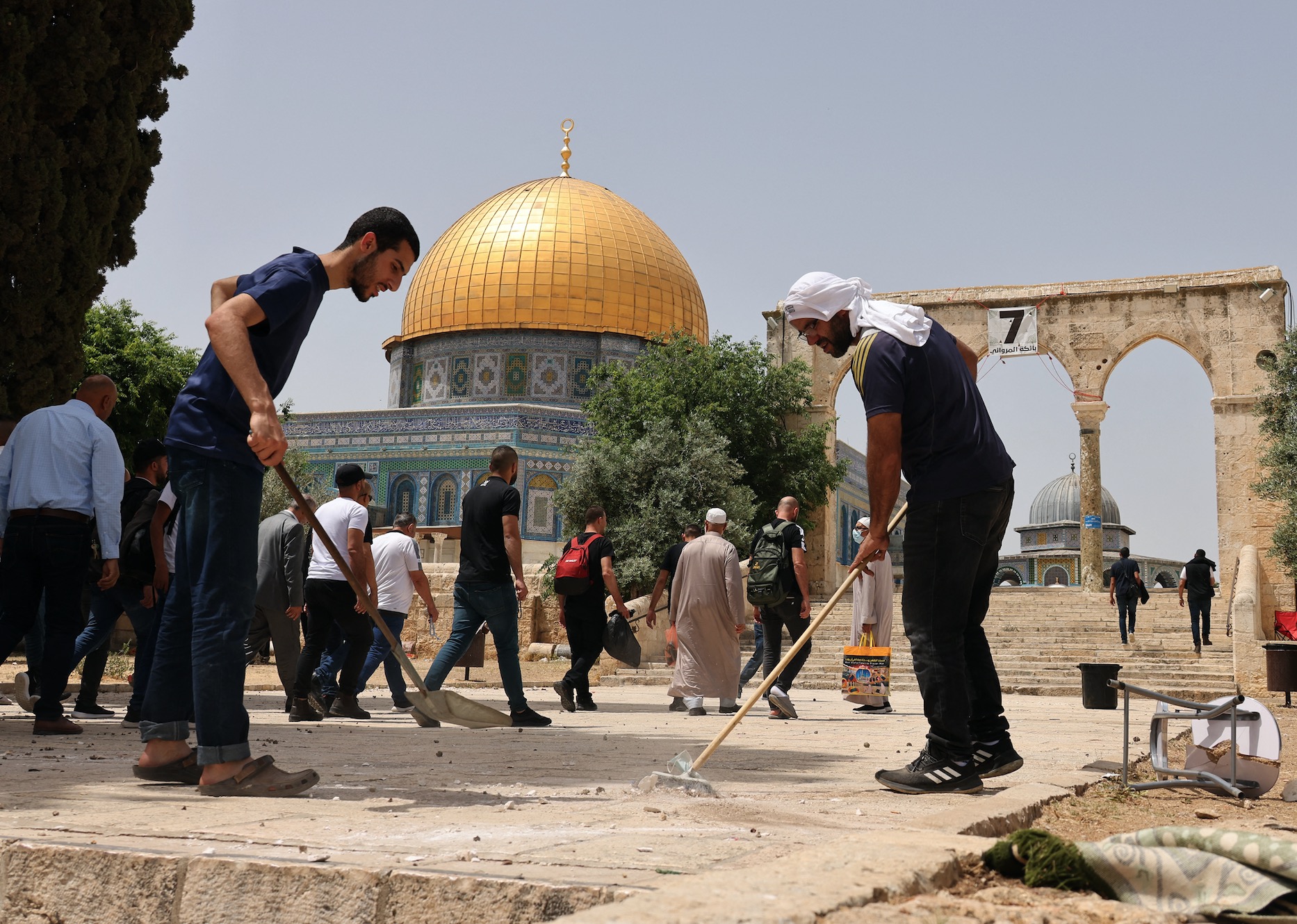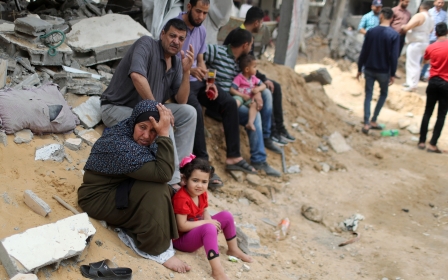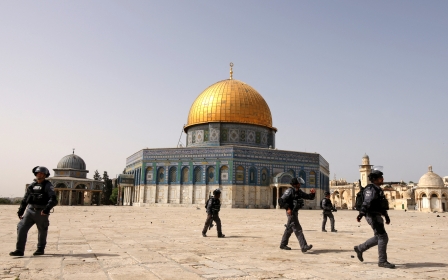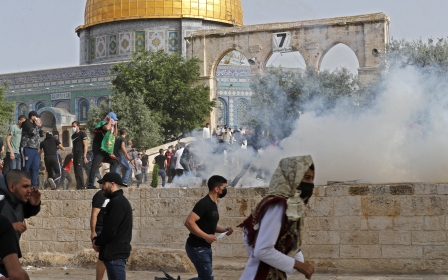Al-Aqsa raid: An eyewitness account of Israel's crackdown on worshippers
As told to Nadda Osman.
It was a normal night, I was staying at the al-Aqsa Mosque as we do in the last ten days of Ramadan. At around 3am, we started seeing Israeli groups breaking into the mosque and gathering around in groups. It felt like a warning to us.
As worshippers continued on with nightly prayers, the sound of people breaking in caused alarm.
We prayed Fajr (dawn prayers) at around 4am and watched the settlers as they continued marching in, carrying with them stones and whatever materials they could to form a barrier. Israeli forces were positioned in strategic locations, targeting worshippers in the area.
While young people were preparing for their seminar at 8am, Israeli police started targeting us with snipers using rubber bullets. Some of the young people reacted with stone-throwing.
The Israeli forces walked all around the area of the western side of the mosque, breaking everything they could, including cameras in the surrounding area. Solidarity between Palestinians was strong, and they gathered to support each other as they struggled to breathe due to the tear gas.
I was near the Qibli Mosque when the police started attacking us. They were positioned in rows, and were targeting us with tear gas. They were aiming to drag people to the north side, and from there to the gate to evacuate the mosque.
It was terrible. Within minutes, it felt like the sky was falling down on us. I wanted to try and escape the rubber-coated bullets, so I hid, in order to be out of sight.
Around me, people could not help but shout about the savageness of the police and the amount of ammunition used in the mosque. In many cases, people were beaten while they were offering voluntary prayers. There was no respect for the elderly, women or the young.
The tear gas caused us breathing issues, and the elderly were struggling to run away, suffocated with the tear gas and unable to see clearly before them.
My mother, who is in her late 60s, was struggling to run away after finishing her prayers at the Mercy Gate. The use of tear gas in a closed location made it difficult for everyone around to breathe. Many older women like my mother suffered as a result.
Many were taken by surprise.
Tensions were growing over planned evictions in Jerusalem’s Sheikh Jarrah neighbourhood, and many anticipated some unrest as Israelis prepared to celebrate Jerusalem Day, which commemorates Israel's capture of East Jerusalem during the 1967 war. But Palestinians gathered at al-Aqsa to pray, thinking they would be left in peace.
The attack was unexpected. We did not think that the Israeli soldiers would break into the mosque. Sound grenades were used in mass quantities, we didn't know where we were being attacked from and the sounds were horrible. We had no idea what to do.
Although a shock, the raid has not broken the spirit of Palestinians, and they are determined to keep resisting.
Many Palestinians came to support each other, and ended up getting wounded themselves in order to help those who had been beaten or shot at. Everyone just wanted to help.
Palestinians are only getting stronger; they came back to the mosque despite being barred by Israeli soldiers at the gates.
Following the raid, the mosque was littered with rocks, shards of glass, and the carpets were stained.
However, despite the violence and unrest caused by the raid, Palestinians were quick to return to the mosque to start cleaning it again.
Ramadan is still not over, and we want the mosque to be returned to its original condition, so we can come back and perform night prayers, particularly in the final few days before Eid.
This article is available in French on Middle East Eye French edition.
Middle East Eye propose une couverture et une analyse indépendantes et incomparables du Moyen-Orient, de l’Afrique du Nord et d’autres régions du monde. Pour en savoir plus sur la reprise de ce contenu et les frais qui s’appliquent, veuillez remplir ce formulaire [en anglais]. Pour en savoir plus sur MEE, cliquez ici [en anglais].


